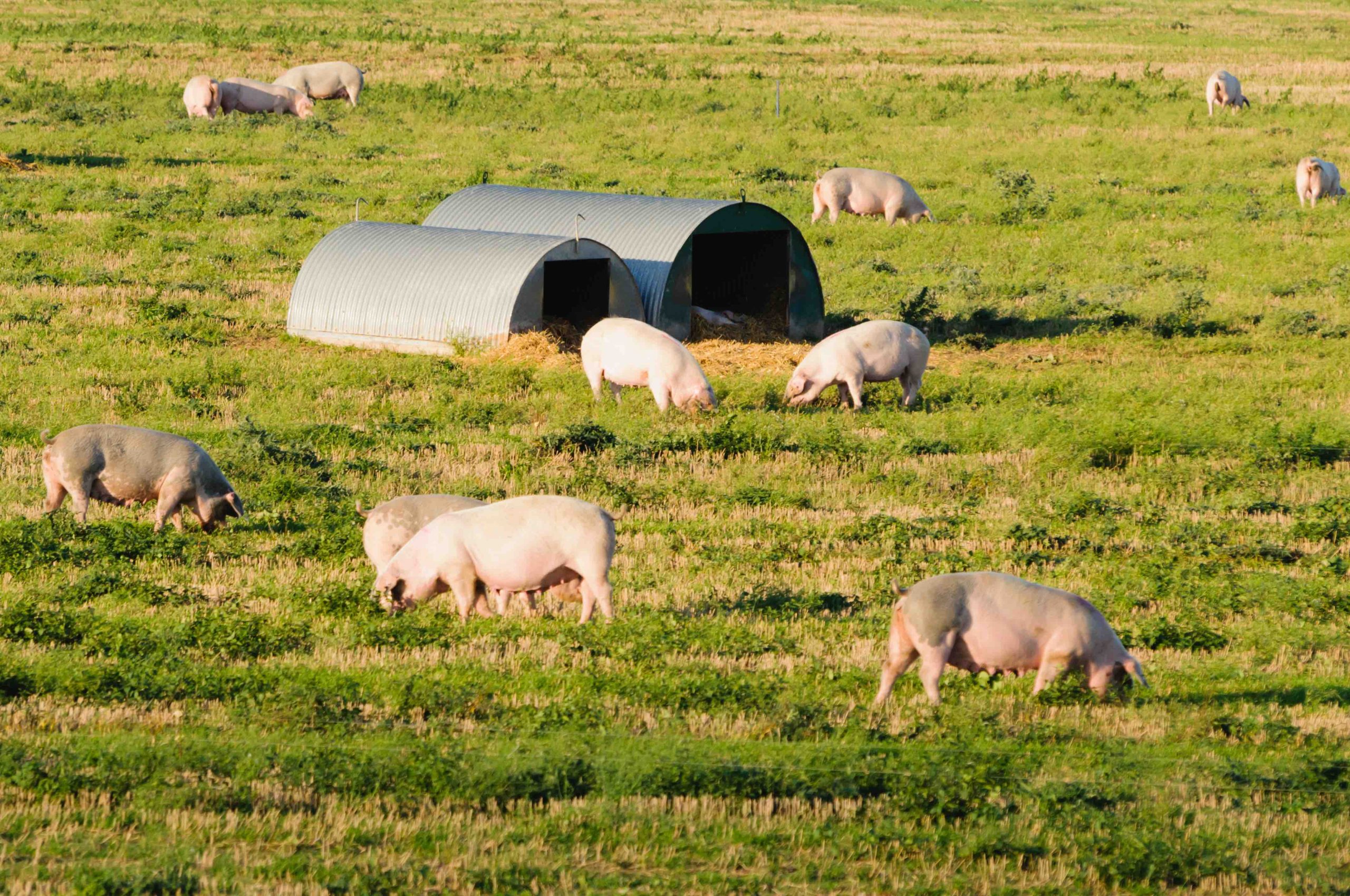May 24, 2024
I can’t begin to count the number of hard days turned around by a succulent pork sandwich or a few eggs cracked into an omelet. Any attempt to undermine this experience must be confronted.
Such is the case with the EATS Act, a bill being pushed in Congress by the nation’s biggest pork producer and the largest Chinese owner of American farmland, Smithfield. The bill would undo state laws designed to enforce higher ethical standards in raising farm animals, such as by banning confinement crates for pigs. Only companies who raise their animals in this way can sell their products in these states. In turn, state consumers get a better tasting product.
These laws create and protect markets for higher quality food that would disappear if the EATS Act is passed, clearing the way for massive agri-businesses to smother smaller, more humane competitors.
Protecting Choice and Flavor
Conventional confinement practices result in more adulterated food that tastes worse. Your basic egg comes from a chicken living in a battery cage the size of a microwave, stacked by thousands. Your standard pork chop comes from a pig that lives its life in a space of less than five square feet. It is also born from a sow that lives over three months in a cage where it can’t stand up or turn around, while being pumped full of antibiotics to keep it alive.
Though generally values-driven, these state laws have also effectively created markets that emphasize better quality food — and consumers don’t want to go back. Back in 2002, Florida passed a law banning gestation crates, which are extreme confinement cages for pregnant pigs. Massachusetts and California followed suit in 2016 and 2018 and required pigs have more than five square feet to live in. Ohio, with over 3% of the nation’s swine herd, is the biggest pork-producer to ban the crates, with full implementation in 2026.
By that time, about 6% of U.S. farm pigs will be covered by crate bans. This is far from the Armageddon predicted by convention producers. What these states have done is to ensure that smaller, more ethical producers have niches in the rapidly consolidating marketplace where they can survive.
These producers have an outsized economic impact on state economies compared with conventional pork producers. Much of this is because these producers receive a premium price for their product, while on-the-ground farmers enjoy a greater portion of the profits. This is good for farmers, who are generally getting less and less money for their product as time goes by.
But if states were no longer allowed to make their own policies, as the EATS Act would have it, then these markets would likely collapse under the totalizing weight of the Big Ag conglomerates, leading to a collapse in overall quality and in consumer choice.
Chinese Land Grab
The saddest reality is that the same politicians who want to look tough on China are, through the EATS Act, supporting the Chinese takeover of American agriculture. Last month, the House Agriculture Committee held a hearing titled “The Dangers of China and American Agriculture.” All members decried Chinese ownership of farmland. However, the majority of Republican Agriculture Committee Members, including Chairman Glenn “G.T.” Thompson, R-Pa., are backing the EATS Act, which would help companies like Smithfield snuff out its competition.
Despite its down-home name, Smithfield is entirely Chinese owned. And it’s not only American’s largest pork producer; it’s the single biggest Chinese owner of American land, period.
Restoring Quality and Variety
EATS Act supporters argue that these state laws are burdensome to farmers, but this is hogwash. Ask real farmers about what makes their jobs more difficult, and giving reasonable space to animals is far from the top of the list. What about Congress sucking its thumb on visa reform for immigrant farm workers to address chronic labor shortages? Or Washington not enforcing anti-trust laws in the agricultural space? Predatory pricing, where larger outfits drive smaller competitors out of business by running below-market prices, has only recently been addressed by the Biden Administration.
These practices have destroyed food quality and consumer choice; the EATS Act would then destroy state efforts to undo the damage.
Almost every other developed country has better food quality and choice than the United States. This is because producers can bring to market an amazing variety of foods of distinctive quality — when they aren’t smothered by agri-business competitors that wield the power of the federal government against them.
The markets created by state laws enforcing ethical farm standards provide the foothold for a new birth of quality and variety in American food. The EATS Act, on the other hand, would mean nothing less that Congress bending over backwards to destroy these markets — all so a Chinese company can continue to torture animals and make your food bland and boring.
Vinnie Trometter is director of government affairs at Competitive Markets Action and a native of Williamsport, Pa.
